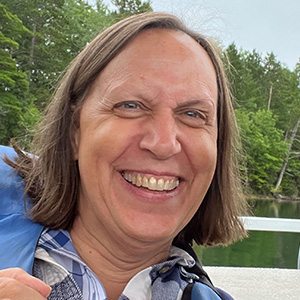Emily Stanley is a professor in the Department of Integrative Biology and the Center for Limnology at the University of Wisconsin-Madison, and has served as the lead PI for the North Temperate Lakes Long Term Ecological Research program since 2009. She received her B.S. degree from Yale University and Ph.D. from Arizona State University. Stanley’s research group studies aquatic ecosystem ecology, biogeochemistry, and long-term change in lakes. This has included studies of dam removals, spatial heterogeneity of water chemistry within lakes and rivers, large-scale patterns of water quality in lakes, and carbon cycling and greenhouse gas dynamics in inland waters. Stanley was named an Aldo Leopold Fellow in 2006, an Ecological Society of America Fellow and a Society for Freshwater Science Fellow in 2018. She also received ASLO’s G.E. Hutchinson award in 2018 in recognition of her outstanding and synthetic contributions to the understanding of nitrogen and carbon cycling in lakes and streams.
Lakes are iconic features of glaciated landscapes around the world and provide a range of benefits from recreation to provision of food and water. Yet anthropogenic pressures on these systems are increasing. For some lakes, effects of human influence are obvious, while in others, changes may not be apparent. Understanding and predicting how lakes respond- or do not respond- to environmental change are essential for their management and sustainability but can be a difficult undertaking. Long-term studies of lakes have proven to be particularly valuable for gaining insights about lake responses to human activities. However, maintaining long-term research and monitoring efforts can be extremely challenging. This talk will provide an example long-term science at the North Temperate Lakes Long-Term Ecological Research program in Wisconsin to illustrate the challenges and opportunities of long-term science and its value for future lake management efforts.

Support the people who manage our natural areas and protect biodiversity in perpetuity.